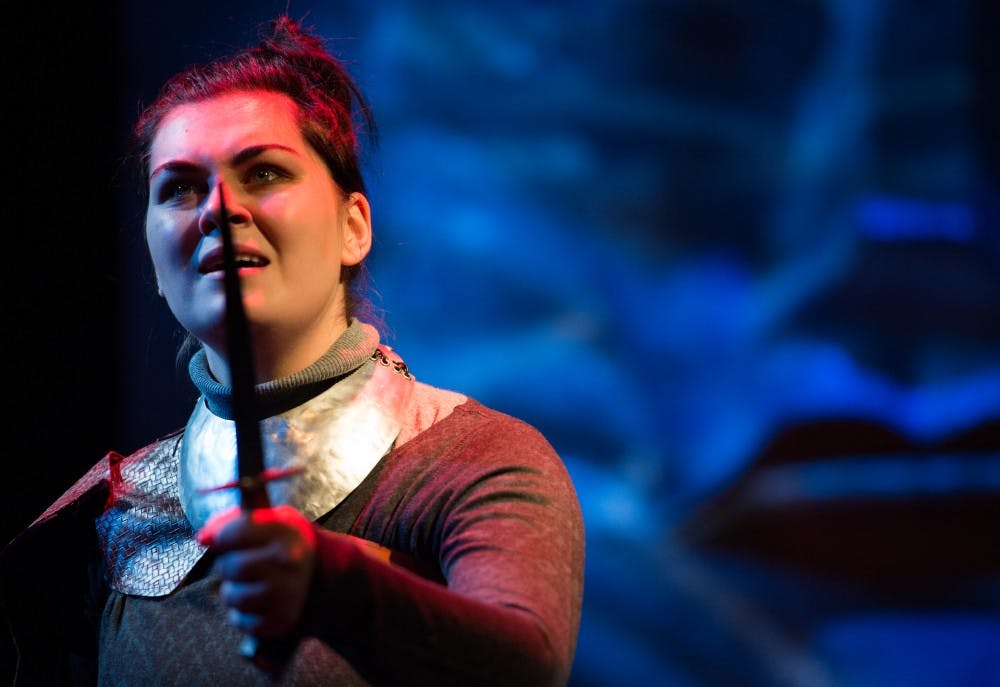A team of women — including the director, actresses and stage managers — set out to tell a story of challenges, difficult choices and sacrifices that women have to make and have had to make for decades in Top Girls.
Top Girls is a play by Caryl Churchill that has completed its first round of performances and will soon head into its second weekend Wednesday through Saturday. The show is directed by Allison Epperson and will take place on the Elizabeth Evans Baker Theater in Kantner Hall.
Set in England in the 1980s, the plot centers around Marlene, a young woman who has just managed to ascend in the ranks of her company and now reflects on the consequences of the choices she that got her to her position.
Epperson, a graduate student studying directing, loved the experience of working with an entire cast of women.
She said the entire process was "wonderful."
"That was one thing we could all relate to, because the play is about the female experience,” she said.
Epperson said the cast had discussions about how society has made progress in some areas regarding women’s rights, but next to none in others.
The show being set in the 1980s necessitates a great amount of dramaturgical work, and Erika Gellner, who plays Marlene, said Epperson did a great amount of work in this area.
The importance of conducting research about setting and time in theater is highlighted in the program’s note by the show’s dramaturg, Brayden Frascone.
“Top Girls is a play about society: how women are expected to behave, how extreme class differences lead to unrest and distrust and how the individual must be responsible for their community,” Frascone, a senior studying playwriting, said. “Even 35 years after its production, Top Girls is not a time capsule or period piece.”
He, along with Epperson, said many of the show’s issues have persisted into the 21st century.
“This play was written in 1982, and we’re dealing with the same issues (now),” Epperson said.
Gellner, a senior studying acting, said working with a director who is a student, did not take a toll on the experience.
“She was also learning and growing throughout this process,” Gellner said. “She has so much insight.”
Gellner also said with the help of her mentors, Epperson’s directorial work matches that of an actual faculty member.
Gellner said she always thought of her character Marlene as the anti-hero.
“She had to fight her way to the top,” Gellner said. “Some of the things aren’t going to be nice or friendly.”
Gellner said how challenging the role was, as she and Marlene “are two completely different people.”
Though the cast has several days before the next weekend of shows, they will try to stick to doing the show the way they’ve been rehearsing for so long. However, Epperson said the show changes constantly, even up until the final rehearsals.
“New changes are always being made and implemented,” Epperson said.
The first scene of the play shows Marlene sitting down for a celebratory dinner with famous women from history and art. However, the scene actually takes place last in the sequence of the show. Epperson said the scene is a representation of the “price of Marlene’s choices and the price of her successes.”
She also said people should come to see the show because it’s a learning and reflecting experience for everybody about how the world is so driven by success. The choices students have to make are the choices the audience sees the protagonists facing throughout the play.
Many of OU’s students “are so privileged, because (they’re) in an environment where it is safe to fail while taking risks,” Epperson said. “Many are not so lucky.”






